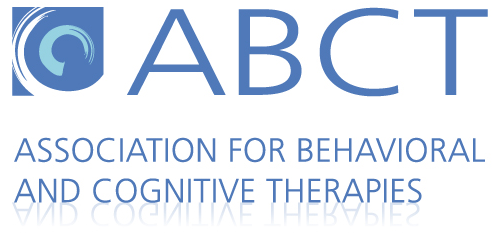Behavior Therapy
Created on August 5, 2017. Last updated on January 11th, 2024 at 12:28 pm
What is Behavior Therapy?
Behavioral therapies for children and adolescents vary widely, but they all focus on how some problematic thoughts or negative behaviors may unknowingly or unintentionally get “rewarded” within a young person’s environment. These rewards or reinforcements often contribute to an increase in the frequency of these undesirable thoughts and behaviors. Behavior therapies can be applied to a wide range of psychological symptoms among adolescents and children.
Although behavioral therapies can vary substantially from disorder to disorder, a common thread is that behavioral therapists encourage children and adolescents to try new behaviors, reward desired behaviors, and to allow unwanted behaviors to “extinguish” (that is, ignore unwanted behaviors).
For instance, imagine a teenager who has difficulty completing homework. To encourage desired behaviors (e.g., homework completion), the parents institute a reward plan that includes earning points each day that homework is completed that can be traded in for a desired reward at the end of the week (e.g., using the car to go to the movies with friends). The reward must be something the youth wants and it must be specifically tied to a specific goal (homework completion). At first the youth works for the external reward, but over time, the task itself becomes easier and the reward can be faded out. Then, new goals can be generated.
In behavior therapy, parents and children learn to promote desirable behaviors and reduce unwanted behaviors.
One common trap that families fall into is unintentionally rewarding the wrong behavior. For example, take the teen who has not finished his homework, but really wants to take the car. Despite initial objections, the teen persists, and becomes angry, irritable, and disobedient towards his parents. Following a tantrum, the parents decide they cannot take the hassle anymore and allow him to borrow the car. In this way, the parents unintentionally reward, or reinforce, the teen’s oppositional behavior. The best way to handle these situations is to planfully ignore acting out behavior and to reinforce wanted behavior (homework attempts) as much as possible. Behavioral therapists seek to understand such links between behaviors, rewards, and learning, and to help youth and parents shape their own behaviors to meet individual and family goals.
Types of Behavioral Therapies
Behavioral Classroom Management
Behavioral classroom management is a type of evidence-based therapy designed to support students’ positive behaviors in the classroom, while preventing negative behaviors, and increasing student academic engagement. In this type of therapy, the child’s teacher participates in delivering the treatment. Behavioral classroom management has received substantial empirical support as an effective therapy in the treatment of attention-deficit/hyperactivity disorder (ADHD).
Behavioral Peer Interventions
Behavioral peer interventions involve one or more of a student’s peers providing assistance to the child with behavioral problems. A teacher will train a child’s peers to reinforce the child’s positive behaviors and academic performance with social and academic support strategies. This kind of therapy is often used in the school setting and has been shown to provide many benefits to academic, social, and interpersonal development.
Participation has also shown to be a positive influence for the peer assistant as well, because it reinforces a sense of responsibility and constructive behavioral changes. Behavioral peer interventions have been proven by science to be effective in treating ADHD.
There are a variety of peer-based behavioral interventions, including:
- Peer modeling
- Peer initiation training
- Classroom-wide tutoring
Behavioral Parent Training
Behavioral parent training was developed to teach parents how to reinforce desirable behaviors in their children, discourage unwanted behaviors, and improve parent-child interactions. In this form of therapy, the parents play a significant role in treating their children’s behavior problems. During the therapy sessions, parents learn how to carefully observe their children’s behaviors at home and are taught skills to reward their children’s positive behaviors by using praise, positive attention, and rewards. They are also taught to use rule-setting, time-out, and ignoring to discourage bad behaviors.
Behavioral parent therapy has received substantial empirical support to be effective in reducing behavior problems – especially for children with ADHD.
Combined Behavioral Management Interventions
Research has found that combining forms of behavioral classroom management, behavioral parent training, and/or behavioral peer interventions are well-established and effective for treating ADHD.
Modeling
Modeling is a form of therapy in which a therapist demonstrates a non-fearful response to a negative situation in order to promote imitation in the child or adolescent. It has been proven to be effective in treating anxiety in children and adolescents.
Source(s):
Steven W. Evans, Julie Sarno Owens, & Nora Bunford (2013). Evidence-Based Psychosocial Treatments for Children and Adolescents with Attention-Deficit/Hyperactivity Disorder. Journal of Clinical Child & Adolescent Psychology Vol. 43 Issue 4, 527-551. http://dx.doi.org/10.1080/15374416.2013.850700
Charmaine K. Higa-McMillan, Sarah E. Francis, Leslie Rith-Najarian, & Bruce F. Chopita (2016). Evidence Base Update: 50 Years of Research on Treatment for Child and Adolescent Anxiety, Journal of Clinical Child & Adolescent Psychology, 45:2, 91-113, http://dx.doi.org/10.1080/15374416.2015.1046177








